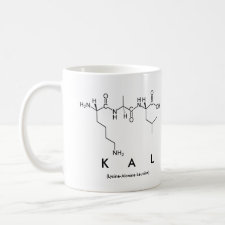
Authors: Viveiros R, Karim K, Piletsky SA, Heggie W, Casimiro T
Article Title: Development of a molecularly imprinted polymer for a pharmaceutical impurity in supercritical CO2: Rational design using computational approach.
Publication date: 2017
Journal: Journal of Cleaner Production
Volume: 168
Page numbers: 1025-1031.
DOI: 10.1016/j.jclepro.2017.09.026
Alternative URL: http://www.sciencedirect.com/science/article/pii/S0959652617320152
Abstract: Supercritical fluid technology is a green and promising alternative for the development of molecularly imprinted polymers. These affinity polymers are obtained ready-to-use, without organic solvent residues, and with controlled properties which could prompt their use in several areas. In this work, a molecularly imprinted polymer (MIP) with affinity for a model pharmaceutical impurity, acetamide, was pre-designed using a user-friendly computational approach in order to optimize MIP synthesis in supercritical CO2. Molecular Modelling was performed using SYBYL™ software, introducing for the first time CO2 as solvent in the rational design of MIPs. A virtual library of functional monomers was created and screened against acetamide. The monomers giving the highest binding energy were selected and used in a simulated annealing (molecular dynamics) process to investigate their interaction with the template acetamide in the presence of CO2 as the porogen. Itaconic acid and 2-hydroxyethyl methacrylate were selected as the best monomers to interact with acetamide and the molar ratios generated were used in the MIP synthesis in supercritical carbon dioxide. Binding and selectivity experiments were performed to evaluate the affinity performance of the polymers. The experimental results indicate that itaconic acid-MIP, as predicted by SYBYL™, has higher affinity and selectivity to acetamide, highlighting the value of this computational tool in MIP optimization using supercritical fluid technology
Template and target information: acetamide
Author keywords: Supercritical carbon dioxide, Affinity polymers, Green chemistry, computational design, molecular imprinting, molecular modelling



Join the Society for Molecular Imprinting

New items RSS feed
Sign-up for e-mail updates:
Choose between receiving an occasional newsletter or more frequent e-mail alerts.
Click here to go to the sign-up page.
Is your name elemental or peptidic? Enter your name and find out by clicking either of the buttons below!
Other products you may like:
 MIPdatabase
MIPdatabase









